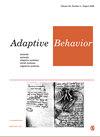A two-stage multi-attribute group consensus model based on distributed linguistic assessment information from the perspective of fairness concern
IF 1.3
4区 计算机科学
Q4 COMPUTER SCIENCE, ARTIFICIAL INTELLIGENCE
引用次数: 1
Abstract
The consensus reaching process (CRP) is a key step in group decision-making (GDM), in which reaching a satisfactory consensus often requires certain costs, such as time, money, and effort. Moreover, benefits from the CRP are often compared among decision-makers, which raises fairness issues. Given these, this paper comprehensively considers these two factors in linguistic GDM modeling. Aiming at the problem of multi-attribute group decision-making (MAGDM) under distributed linguistic assessment (DLA) information, a two-stage group consensus model that considers psychological behaviors with fairness concern is proposed. Subsequently, the feasibility and effectiveness of the proposed model are illustrated by a case of selecting emergency material warehouses related to urban flood disasters. The main innovations and contributions of this paper are as follows. (a) The psychology of individual fairness concern is integrated into the MAGDM process with DLA information. (b) The DLA-based two-stage group consensus model, including the first-stage consensus model with maximum fairness satisfaction degree and the second-stage consensus model with minimum cost, is developed. Compared with the existing consensus models for distributed linguistic MAGDM, the proposed consensus model can not only improve the consensus level on the opinions with minimum cost but also promote the fairness satisfaction degree of decision-makers.公平关注视角下基于分布式语言评估信息的两阶段多属性群体共识模型
达成共识过程(CRP)是群体决策(GDM)的关键步骤,在群体决策中,达成令人满意的共识通常需要一定的成本,如时间、金钱和精力。此外,决策者经常比较CRP带来的好处,这引发了公平问题。鉴于此,本文在语言GDM建模中综合考虑了这两个因素。针对分布式语言评估信息下的多属性群体决策问题,提出了一种考虑公平心理行为的两阶段群体共识模型。随后,以城市洪涝灾害应急物资仓库的选择为例,说明了该模型的可行性和有效性。本文的主要创新和贡献如下。(a) 将个体公平关注心理与DLA信息整合到MAGDM过程中。(b) 开发了基于DLA的两阶段群体共识模型,包括具有最大公平满意度的第一阶段共识模型和具有最小成本的第二阶段共识模型。与现有的分布式语言MAGDM共识模型相比,所提出的共识模型不仅能以最小的成本提高意见的共识水平,还能提高决策者的公平满意度。
本文章由计算机程序翻译,如有差异,请以英文原文为准。
求助全文
约1分钟内获得全文
求助全文
来源期刊

Adaptive Behavior
工程技术-计算机:人工智能
CiteScore
4.30
自引率
18.80%
发文量
34
审稿时长
>12 weeks
期刊介绍:
_Adaptive Behavior_ publishes articles on adaptive behaviour in living organisms and autonomous artificial systems. The official journal of the _International Society of Adaptive Behavior_, _Adaptive Behavior_, addresses topics such as perception and motor control, embodied cognition, learning and evolution, neural mechanisms, artificial intelligence, behavioral sequences, motivation and emotion, characterization of environments, decision making, collective and social behavior, navigation, foraging, communication and signalling.
Print ISSN: 1059-7123
 求助内容:
求助内容: 应助结果提醒方式:
应助结果提醒方式:


